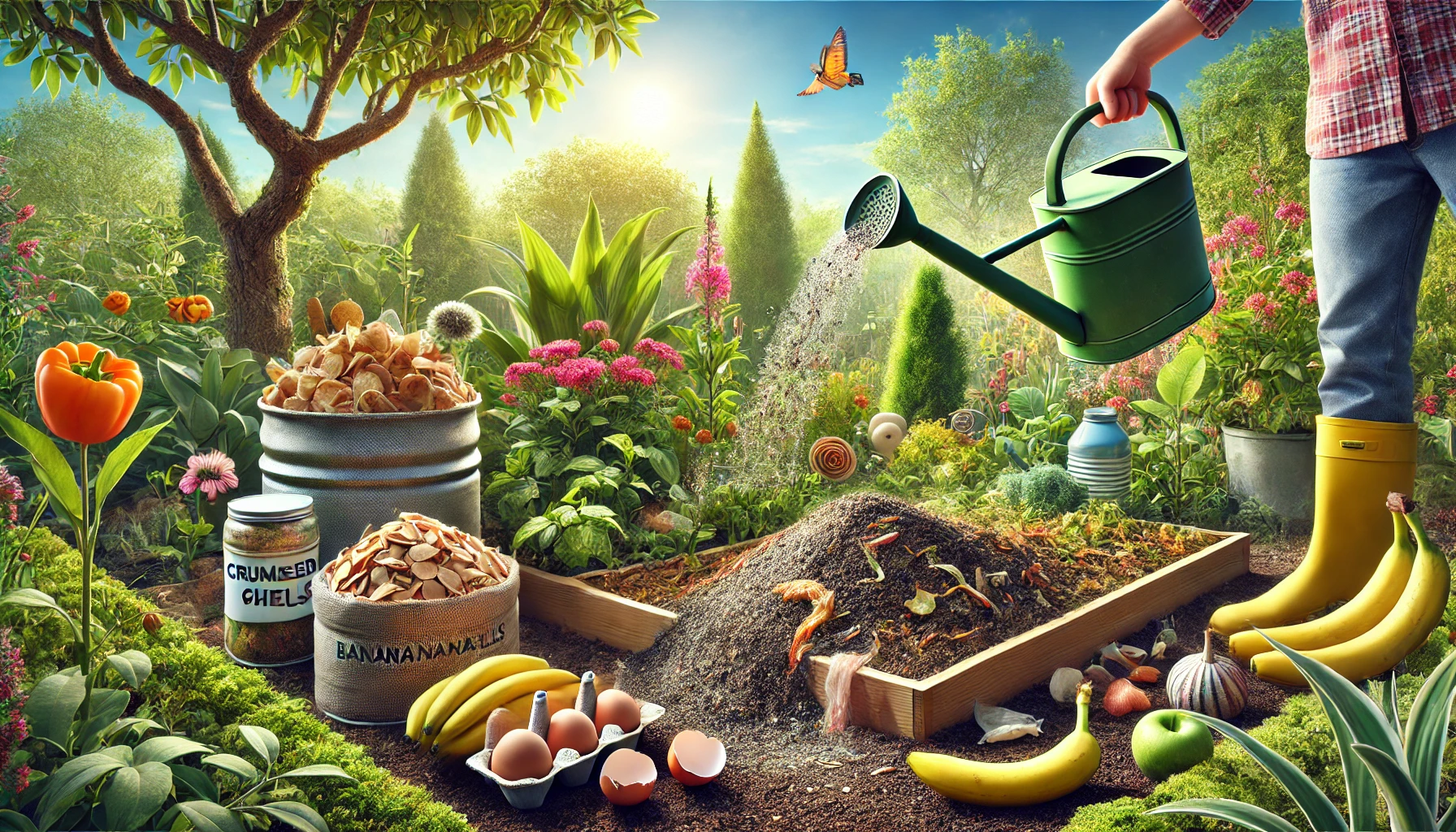Fertilizing is a crucial part of plant care, providing essential nutrients to support healthy growth and vibrant blooms. While chemical fertilizers are commonly used, natural fertilizers are an eco-friendly and sustainable option that enrich the soil without harming the environment. In this article, we’ll explore the benefits of natural fertilizers and how to use them effectively.
What Are Natural Fertilizers?
Natural fertilizers are derived from organic materials like compost, animal manure, and plant-based waste. They improve soil structure, promote healthy microbial activity, and provide long-lasting nutrients to plants. Unlike synthetic fertilizers, they don’t pose a risk of chemical buildup in the soil.
Benefits of Using Natural Fertilizers
- Environmentally Friendly: Reduces pollution and minimizes harm to beneficial organisms.
- Improves Soil Health: Enhances the soil’s ability to retain moisture and nutrients.
- Sustainable Resource: Made from readily available materials, reducing waste.
- Safer for Plants: Low risk of over-fertilizing, which can damage plants.
Types of Natural Fertilizers
Here are some of the most effective natural fertilizers you can use:
1. Compost
Compost is a nutrient-rich mixture of decomposed organic matter, such as kitchen scraps and garden waste.
- How to use: Mix compost into the soil around your plants. It works well for vegetables, flowers, and houseplants.
2. Animal Manure
Manure from animals like cows, chickens, and horses is an excellent source of nitrogen, phosphorus, and potassium.
- How to use: Allow fresh manure to age or compost it before applying to avoid burning plant roots.
3. Bone Meal
Bone meal is made from ground animal bones and is a great source of phosphorus and calcium.
- How to use: Sprinkle it into the soil around flowering plants and bulbs.
4. Fish Emulsion
A liquid fertilizer made from fish waste, fish emulsion is high in nitrogen and promotes lush foliage.
- How to use: Dilute it in water and apply as a foliar spray or directly to the soil.
5. Banana Peel Fertilizer
Banana peels are rich in potassium and can be used to boost flowering and fruiting plants.
- How to use: Chop the peels and bury them near the base of your plants.
6. Eggshells
Eggshells are an excellent source of calcium, helping to strengthen plant cell walls.
- How to use: Crush the shells and mix them into the soil or use them as mulch.
How to Apply Natural Fertilizers
- Test Your Soil: Determine the nutrient needs of your soil before applying fertilizers.
- Apply in Moderation: While natural fertilizers are gentle, over-application can still overwhelm plants.
- Mix Well with Soil: Incorporate the fertilizer into the soil to ensure even distribution.
- Water After Application: This helps the nutrients penetrate the soil and reach the roots.
Tips for Success
- Combine different types of natural fertilizers to provide a balanced nutrient mix.
- Use organic mulch, like straw or wood chips, to retain soil moisture and enhance fertility.
- Compost at home to recycle kitchen and garden waste into nutrient-rich fertilizer.
Creating a Healthy Environment for Your Plants
Natural fertilizers are a fantastic way to nourish your plants while supporting the environment. With a little effort, you can turn everyday waste into powerful plant food, ensuring your garden thrives naturally.

